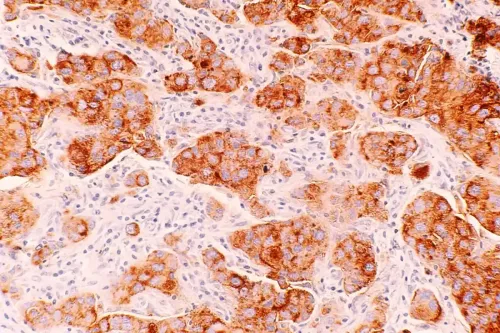
What Are Lung Cancer Clinical Trials?
Lung cancer clinical trials are research studies that test new lung cancer drugs, diagnostic tools, and treatment approaches in people with lung cancer. These trials are essential for:
- Advancing new therapies and treatment combinations
- Improving lung cancer survival rates and quality of life
- Personalizing treatment based on genetic and molecular features (precision oncology lung cancer)
Why Clinical Trials Matter in 2025
Advancements in Personalized Medicine
Precision oncology and personalized lung cancer therapy are transforming cancer care. In 2025, lung cancer clinical trials increasingly focus on genetic profiling and next-generation sequencing (NGS) to match patients with targeted therapies. Key innovations include:
- Next-generation sequencing (NGS) for identifying genetic mutations
- Biomarker-driven lung cancer trials
- Targeted therapies such as EGFR inhibitors, ALK inhibitors, and KRAS inhibitors
Growing Role of Immunotherapy
Immunotherapy for lung cancer, especially checkpoint inhibitors like pembrolizumab and nivolumab, continues to dominate the landscape. New combinations of immunotherapy with chemotherapy and radiation are being explored to improve patient outcomes.
Examples of 2025 clinical trials
- Trials studying PD-L1 inhibitors in earlier-stage non-small cell lung cancer (NSCLC)
- Neoantigen vaccines to enhance immune response in lung cancer patients
What’s Emerging in Lung Cancer Clinical Trials (2025 Edition)
1. Liquid Biopsies and Early Detection
One of the most promising developments is the increased use of liquid biopsy: a minimally invasive blood test that detects cancer-related mutations. Liquid biopsy lung cancer tests enable:
- Faster diagnosis and early detection
- Real-time monitoring of tumor evolution
- Better patient stratification for clinical trials
2. Artificial Intelligence in Lung Cancer Trials
AI in lung cancer research is helping to:
- Analyze patient data more accurately
- Predict treatment response and outcomes
- Design smarter, adaptive clinical trials for lung cancer
3. Decentralized Clinical Trials (DCTs)
Decentralized clinical trials for lung cancer allow patients to participate from home or local clinics, increasing accessibility and diversity.
Advantages:
- Increased accessibility to lung cancer clinical trials
- Higher retention rates
- Broader, more diverse participant pools
The Future of Lung Cancer Clinical Trials
- Personalized Medicine: Trials are increasingly tailored to genetic and molecular features, maximizing benefit and minimizing unnecessary treatment.
- Combination Therapies: Researchers are testing new combinations of targeted drugs, immunotherapies, and traditional treatments to outsmart resistance and improve survival.
- Patient-Centric Clinical Trials: Decentralized and hybrid trials are making participation easier, more convenient, and more inclusive.
- Global Collaboration: International studies and data sharing are speeding up discoveries and expanding access to innovative lung cancer therapies.
How PatLynk Helps Patients Access Lung Cancer Trials
Navigating the world of clinical research can be overwhelming. PatLynk simplifies the process by:
- Matching patients with personalized lung cancer trial options using AI and biomarker-driven data
- Offering support and guidance every step of the way
- Working closely with healthcare providers for seamless coordination
With PatLynk, patients no longer need to search blindly for clinical trials. Our platform ensures the right lung cancer clinical trial finds the right patient, improving access to innovative lung cancer treatments and patient support.
Conclusion: The Future of Lung Cancer Care Is Here
2025 is shaping up to be a pivotal year in lung cancer clinical research. From AI-driven diagnostics and liquid biopsy lung cancer tests to decentralized clinical trials and innovative immunotherapies, the landscape is shifting faster than ever. For patients, providers, and researchers, staying informed about the latest lung cancer clinical trials is critical.
At PatLynk, we make it easier for patients to access clinical trials that meet their unique needs. Whether you’re exploring innovative lung cancer treatments or considering trial participation as part of your care journey, PatLynk connects you with opportunities that can make a real difference. Our mission is to empower patients to access the latest medical advances, because everyone deserves access to healthcare innovation.











